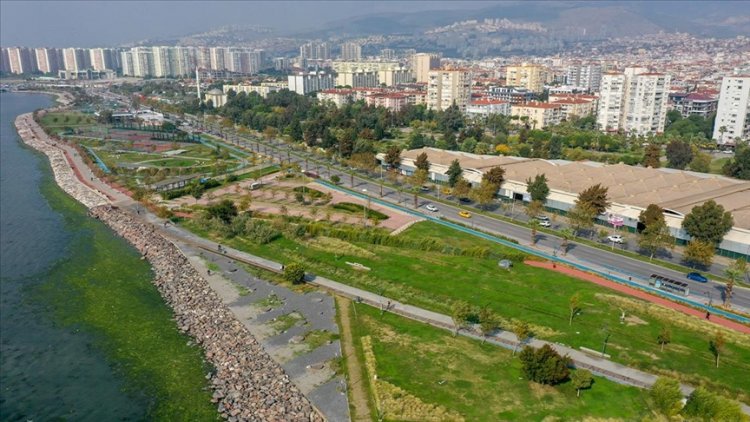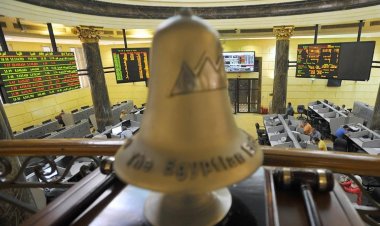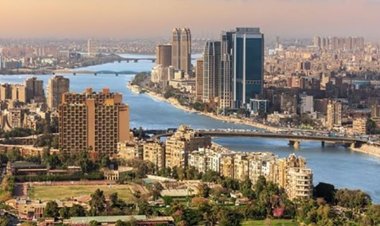6 Egyptian steps towards the green transition
Egypt has taken many steps towards the green transition, among these steps is the transition towards a green economy, the establishment of water desalination plants, and many other steps.

In light of its accelerating steps towards green transformation in order to obtain a clean environment with lower levels of carbon emissions, the Egyptian state is working on establishing and developing many environmentally friendly national projects, which enhance the chances of saving the country from the sweeping climate changes that plague it.
The first electric car insurance policy in Egypt
The last of these projects was the completion of drafting the first electric car insurance document in Egypt, that project that the Egyptian Insurance Federation drafted today during the fourth workshop in the Green Zone held by the Federation in cooperation with the Federation of Industries during the activities of the COP 27 climate summit, which Egypt has been hosting since The sixth of this month of November, which is scheduled to end on the eighteenth of the same month.
The new policy of the Egyptian Insurance Federation was announced to insure electric cars and shed light on the roadmap for the steps that will be taken in the next stage in order to support insurance companies in Egypt to adopt similar insurance policies as part of efforts to mitigate climate risks in the transportation sector.
green economy
Egypt has always sought a green economy by launching several projects to take advantage of green spaces and access to renewable and green energy, which numbered 691 green projects at a total cost estimated at EGP 447.3 billion.
In the budget for the fiscal year 2020/2021, 14% of total public investments were directed to these projects, and until September 2020 the value of green projects amounted to 1.9 US dollars, as they were divided as follows: 16% in renewable energy, 19% in clean transportation, 26% in water and sanitation, 9% in pollution reduction.
Egyptian Green and Carbon Bonds Project
Among these projects is the Egyptian Green and Carbon Bonds project, where the Egyptian carbon emissions market includes the purchase of carbon trading certificates with the aim of urging industrial companies to reduce harmful carbon emissions.
The Egyptian state's efforts in the field of environment included setting up very important projects to protect the coasts, at a cost of approximately 4.2 billion pounds.
Desalination plants
Water desalination plants, smart irrigation, and wastewater treatment have been established, including: Bahr El Baqar plant, which is the largest plant of its kind in the world, according to the Guinness Book of Records.
In the field of transportation, Egypt has established several projects such as the electric train and the monorail, and produced the first environmentally friendly buses locally.
green channel
These efforts also included converting the Suez Canal into a green canal, through the adoption of clean fuel in all its facilities, as well as the establishment of the first plant to convert 4 million tons of waste into 300 thousand tons of green hydrogen annually, with investments amounting to 4 billion dollars, in addition to 15 A memorandum of understanding with international companies to produce ammonia and green hydrogen until 2029 in the Suez Canal Economic Zone.
sustainable energy
Egypt has also paid great attention to renewable energy generation projects, such as wind and solar energy, with several projects in the Gulf of Suez and Aswan, with investments amounting to $8.2 billion, during the period (2010-2020).
It is worth noting that a ministerial committee was formed, headed by the Ministry of Finance and with the membership of all relevant government agencies, to lay down the foundations and regulations necessary for offering the first green intergovernmental bonds.
Then the Low Emissions Capacity Building (LECB) program took place, as the Ministry of Environment announced in 2018 its readiness to launch the first market and stock for emissions trading and the purchase of carbon credits in North Africa and the Middle East, and in the second quarter of 2018, the Ministry indicated that trading certificates will be funded by affiliated environment programs the United Nations and related to climate change and its negative repercussions.
In January 2021, the Ministry of Transport launched a project to replace old means of transportation such as buses and taxis with modern ones that run on natural gas. In September 2021, the Ministry of Planning and Economic Development launched the Environmental Sustainability Standards Guide for the first time, in cooperation with the Ministry of Environment.


 Shrouq
Shrouq 












